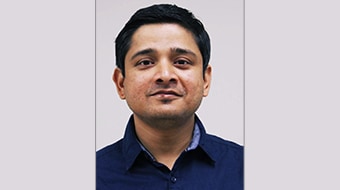Citizens need to regain value and character for India to evolve as a nation and stamp out corruption, the Supreme Court emphasised on Friday, as it called a plea to debar from contesting elections those against whom charges have been framed, a “very important issue”.

“If political parties are not able to find criminal background, it’s problematic…What is happening in the name of democracy. No comments…(but) if we need to evolve as a nation, we have to go back to values, character,” observed a bench of justices KM Joseph and BV Nagarathna.
Granting three weeks to the Union government and the Election Commission of India (ECI) to file their replies to the PIL filed by advocate Ashwini Upadhyay, the bench said that the petition raises a very important issue which is directly linked to the issue of corruption and criminalisation of politics.
Asked by the bench to convey its tentative stand on the issue, ECI, through its counsel Amit Sharma, said that the poll body has been repeatedly raising the issue of criminalisation of politics with the Centre.
Sharma, however, pointed out that Upadhyay’s plea would require parliamentary intervention and a deliberation about the stage at which a person can be debarred from contesting elections. “After conviction, probably it can be done. But the plea says this should be done at the stage of a charge sheet. That’s a little concerning,” the ECI’s lawyer added.
At this point, Upadhyay intervened, pointing out that those charge-sheeted in kidnapping and extortion cases are being elected even as the country is celebrating 75 years of Independence. “Corruption is a chief cause of all this,” he added.
To this, the bench rued that a common man is bogged down by corruption at every level. “Go to any government office, can you come out unscathed? It’s the root of most problems. We need to regain character. There must be accountability at all levels,” it said.
The court adjourned the matter to April 10, directing the Centre and ECI to file their counter affidavits before the next date of hearing.
On September 22, the court had agreed to examine the PIL in light of the recommendation made by the Law Commission in its 244th report that dealt with the need to curb the trend of criminal politicians in legislature posing serious consequences to democracy and secularism.
Upadhyay, in his plea, had cited a host of reports presented in the past by the Law Commission and ECI on the aspect of decriminalising politics. In the 244th report submitted in 2014, the Law Commission recommended disqualification of people against whom charges have been framed at least one year before the date of scrutiny of nominations for an offence punishable with a sentence of five years or more, he said.
The petition claimed that there has been an increase of 44% in the number of MPs with declared criminal cases since 2009. In the 2019 Lok Sabha elections, 159 MPs declared serious criminal cases against them, including those of rape, murder, attempt to murder, kidnapping, crimes against women. This was 29% of the 542 winners. In 2014, only 21% of MPs faced heinous crimes, it added.






